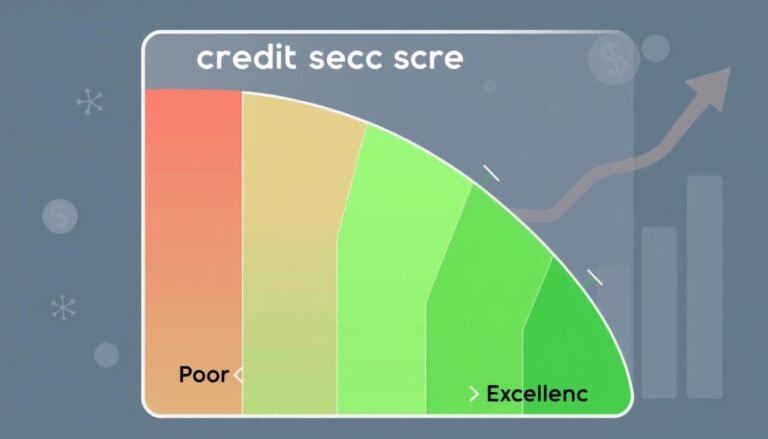Retirement Savings Strategies for Millennials
Millennials, born between 1981 and 1996, face unique challenges in retirement planning. Despite financial downturns like the Great Recession and COVID-19, this tech-savvy generation has the power to shape their financial future. Early investment is key to building wealth and securing a comfortable retirement.
Investment tips for millennials stress the importance of starting early. A $50,000 investment at age 25, left untouched with a 7% annual return, could grow to $800,000 by age 65. This growth showcases the power of compound interest in long-term wealth building.
Many millennials struggle with student loan debt and job changes, which can impact their retirement savings plans. However, these challenges shouldn’t deter them from focusing on their financial future. Experts suggest balancing debt repayment with consistent savings to build a strong foundation for retirement.
Key Takeaways
- Start saving early to leverage compound interest
- Balance debt repayment with retirement savings
- Take advantage of employer-sponsored retirement plans
- Build an emergency fund to protect retirement savings
- Explore tax-advantaged savings options like IRAs
- Adapt savings habits to changing financial priorities
- Consider long-term investment strategies for growth
Understanding the Millennial Financial Landscape
Millennials face unique economic challenges that shape their financial landscape. Born between 1981 and 1996, this generation has seen many economic downturns. These have impacted their ability to build wealth and understand finances.
Impact of Economic Challenges
The wealth gap between millennials and older generations is huge. In 2022, only 51.5% of millennials owned homes. This is compared to 56.5% of baby boomers in 1990. This shows the financial hurdles millennials face, like a tough job market and big student loan debt.
Current Wealth Gap Analysis
A 2023 study found that the average millennial household has $49,000 in retirement accounts and $3,500 in emergency savings. This wealth gap is made worse by student loan debt. The average millennial borrower has $32,800 in educational loans.
Unique Financial Obstacles
Millennials face unique financial challenges:
- 68% of millennials with student loans have delayed other financial decisions
- 26% neglect retirement savings due to student loan obligations
- Credit card interest rates soared from 12.9% in 2013 to 22.8% in 2023
- Nearly one in four millennials have made premature withdrawals from retirement accounts
Despite these challenges, millennials have time on their side. With smart planning and better financial knowledge, they can bridge the wealth gap. They can build a secure financial future.
The Power of Early Investment for Long-term Growth
Millennials have a big chance to grow their wealth early. They can use compound interest to build big retirement funds. For example, starting with $500 and adding $250 each month could grow to $173,249 in 25 years, with a 6% return.
Millennials should invest regularly. By putting in small amounts often, they make the most of compound interest. This method helps them deal with market ups and downs and builds wealth over time.
Let’s look at a comparison:
| Starting Age | Annual Savings | Total Contributed | Retirement Balance at 65 |
|---|---|---|---|
| 19 | $5,000 | $230,000 | $1,500,000+ |
| 25 | $5,000 | $200,000 | $998,000 |
| 30 | $5,000 | $175,000 | $691,000 |
The numbers show a big difference. Starting six years earlier can add over half a million dollars to your retirement savings. This highlights the key role of early investment for millennials to secure their financial future.
“The best time to plant a tree was 20 years ago. The second best time is now.” – Chinese Proverb
Take this advice to heart and start investing now. Your future self will be grateful for the compound interest and smart long-term planning.
Maximizing Employer-Sponsored Retirement Plans
Millennials have a great chance to secure their financial future with employer-sponsored retirement plans. About 70% of millennials are using these plans. This shows many are taking advantage of this valuable benefit.
Understanding 401(k) Benefits
401(k) plans are great for saving for the long term. You can put in pre-tax dollars, which lowers your taxes now. Plus, some employers offer Roth 401(k) plans. These use after-tax dollars but give tax-free withdrawals later.
Company Match Optimization
One big plus of 401(k) plans is the company match. Studies show 80% of millennials get their full employer match. This is like free money that can really grow your retirement savings. If your employer matches 3%, try to contribute at least that much.
Vesting Schedules and Considerations
It’s important to know about vesting schedules in retirement accounts. They show when you own employer contributions fully. Some companies vest immediately, while others require a certain time. Think about this when considering job changes, as leaving early could mean losing some savings.
Starting early is crucial. A millennial saving $50 a month for 50 years could have $226,781, with a 6.5% return. But, waiting 30 years and saving for 20 would only be $24,525. Use your employer’s retirement benefits wisely to secure your future.
Retirement Savings Strategies for Millennials
Millennials have unique financial challenges when planning for retirement. A shocking 67% worry about their money lasting a lifetime. Yet, only 38% are saving for retirement. Let’s look at some effective ways to help millennials save for the future.
| Investor | Starting Age | Monthly Contribution | Retirement Savings |
|---|---|---|---|
| Bob | 22 | $500 | $1,057,228 |
| Sally | 45 | $500 | $407,458 |
This example shows why starting early is crucial. Even small amounts can add up a lot. Bob, saving just 4% of his paycheck, could have $528,614 by retirement.
To start saving for retirement:
- Build an emergency fund for six months of expenses
- Max out contributions to employer plans
- Open a TFSA with a $6,000 annual limit
- Look into RRSPs, with a $27,230 limit for 2020
- Boost retirement savings with each raise
Consistent saving and smart planning are vital for retirement goals. Start now and secure your future.
Building a Strong Emergency Fund Foundation
Creating a solid emergency fund is key for financial security. It protects your retirement savings and keeps you out of debt. Let’s look at how to build and keep this vital financial cushion.
Determining Optimal Emergency Fund Size
Experts say save 3-6 months of living costs in your emergency fund. This gives you a safety net for sudden events like job loss or medical emergencies. To figure out your goal, think about your monthly bills like rent, utilities, food, and more.
Strategic Savings Approaches
Building an emergency fund needs disciplined budgeting. Use the 50/30/20 rule: spend 50% on needs, 30% on wants, and 20% on savings and debt. Start small if you must, and grow your savings over time.
Protection Against Retirement Account Withdrawals
A strong emergency fund keeps your retirement savings safe from early withdrawals. Taking money out of retirement accounts can lead to penalties and hurt your future growth. Your emergency savings act as a shield, letting your retirement investments grow without interruption.
| Emergency Fund Size | Savings Goal | Budgeting Strategy |
|---|---|---|
| 3-6 months expenses | Start with any amount | 50/30/20 rule |
| Adjust for lifestyle | Use windfalls to boost | Automate savings |
| Review periodically | Increase gradually | Track expenses |
Remember, your emergency fund is your first defense against financial troubles. By focusing on this savings goal, you’re taking a vital step towards financial stability and peace of mind.
Diversifying Retirement Income Streams
Income diversification is key for millennials planning their retirement. Only 62% of Americans aged 35-44 have retirement accounts. It’s important to look at different ways to stay financially flexible. Smart millennials aim to save one year’s salary by 30 and three times that by 40.
Having a mix of retirement accounts can offer security and tax benefits. Here are some options:
- 401(k)s: Employer-sponsored plans with potential company matches
- Traditional IRAs: Tax-deductible contributions, ideal for self-employed
- Roth IRAs: Tax-free withdrawals in retirement, subject to income limits
- Health Savings Accounts: Triple tax advantage for medical expenses
Putting unexpected funds or a part of your income into these accounts can create a diverse retirement portfolio. This approach is in line with millennials saving earlier than before. With 75% feeling confident about their retirement, it’s a smart move.
| Account Type | Key Benefit | Contribution Limit (2023) |
|---|---|---|
| 401(k) | Employer match | $22,500 |
| Traditional IRA | Tax-deductible contributions | $6,500 |
| Roth IRA | Tax-free withdrawals | $6,500 |
| HSA | Triple tax advantage | $3,850 (individual) |
By embracing income diversification and starting early, millennials can tackle unique challenges like student loan debt. They can build a strong retirement strategy. This strategy offers growth potential and financial flexibility.
Smart Debt Management While Saving
Millennials face a tough financial landscape. They have an average debt of $115,784 and student loans of $27,500. It’s important to manage debt and save for the future.
Student Loan Repayment Strategies
Dealing with student loans needs a good plan. Look into income-driven repayment plans for federal loans. These plans adjust your payments based on your income, helping you manage debt and save for retirement.
Balancing Debt Payment with Retirement Savings
It’s easy to focus only on debt, but don’t forget about retirement savings. Try to contribute enough to your 401(k) to get the full company match. This is free money you shouldn’t miss.
As you pay down debt, slowly increase your retirement contributions. This way, you can still save for the future.
Debt Consolidation Options
Debt consolidation can make your finances easier to manage. It combines multiple debts into one, often with a lower interest rate. This can save you money in the long run.
Research your options well to find the best fit for you.
Remember, achieving financial balance is a journey. By using smart debt management strategies and saving for retirement, you’re setting yourself up for a secure financial future.
Investment Strategies for Long-term Growth
As millennials enter their 30s and 40s, they need smart investment plans for financial success. Born between 1981 and 1996, they face unique economic hurdles. Therefore, strategic asset allocation and risk management are key.
Target Date Funds
Target date funds are a great choice for millennials. They adjust your investment mix based on when you plan to retire. For those aiming to retire by 2060, the mix might start with 90% stocks and 10% bonds. It then shifts to safer bonds as retirement nears.
Asset Allocation for Millennials
Millennials often choose too safe investments. A more aggressive mix is usually better for them. In your 20s and 30s, aim for 90% stocks and 10% bonds. This balances growth with risk.
As you get older, slowly add more bonds to your portfolio. This helps balance risk and reward.
Risk Management Approaches
Managing risk is vital for a strong investment portfolio. Regularly review and rebalance your portfolio to keep it aligned with your goals. Also, remember to consider inflation in your investment plans.
As you near retirement, consider a financial advisor. They can help with a tax-efficient withdrawal plan. This could save you thousands in taxes.
The main goal is long-term growth. Aim to build a diverse portfolio that fits your risk level and financial goals. With careful planning and regular contributions, millennials can overcome economic challenges and secure their financial future.
Tax-Advantaged Savings Vehicles
Smart millennials are using tax-advantaged accounts to grow their retirement savings. With 76% of millennial workers saving through 401(k)s or similar plans, they’re catching on. These plans let you contribute before taxes, reducing your taxable income now.
For tax-free withdrawals in retirement, Roth IRAs are a top pick. Health Savings Accounts (HSAs) offer a triple tax benefit: contributions are tax-deductible, growth is tax-free, and withdrawals are tax-free for medical expenses. This strategy is key, especially since millennials aim to save $1.8 million for retirement.
It’s great to see millennials up their retirement savings rate from 7.5% to 9.7% in two years. To get the most tax benefits, consider both traditional and Roth accounts while you can. Income limits might block Roth contributions later, so diversify your tax exposure now. Using these vehicles wisely can greatly improve your long-term finances.
Source Links
- Retirement planning for millennials
- Retirement planning for millennials: How to get started and make progress
- Retirement Strategies for Millennials – Alerus Financial
- Financial planning for Millennials
- 7 Pieces of Financial Advice for Millennials
- How Much Do Millennials Need to Save for Retirement?
- How millennials can get started with investing
- Gen Z is harnessing ‘one of the magical qualities of investing,’ advisor says — how it helps them build wealth
- 6 Tips to Saving for Retirement as a Millennial
- Retirement Planning Guide for Millennials – The Money Alert
- Millennials Know It All. But, Are They Saving for Retirement?
- The Millennial and Gen Z Guide to a Sweet Retirement | Morgan Stanley
- Five tips for millennials to get their retirement goals on track
- Personal finance tips for millennials and gen-z’s: building a solid financial foundation
- Financial Planning for Millennials: Building a Strong Foundation for Long-Term Success | HR Interests
- How Millennials Can Build a Holistic Wealth Management Plan with Their Personal Growth Goals
- Meet the generation that may never retire: Why some millennials are behind on savings — and how they can catch up
- Retirement Investment Strategy for Millennials Planning for a Secure Future – investment banking
- The Top 5 Factors Millennials Should Consider for Retirement
- Financial Planning for Millennials
- Smart Saving Strategies for Millennials and Gen Z – The Colony Group
- Millennials: Finances, Investing, and Retirement
- Millennials, It’s Time to Change Your Investment Strategy – NerdWallet
- Retirement Strategies For Millennials
- Why millennials are behind when it comes to saving for retirement — and what they can do to get ahead








